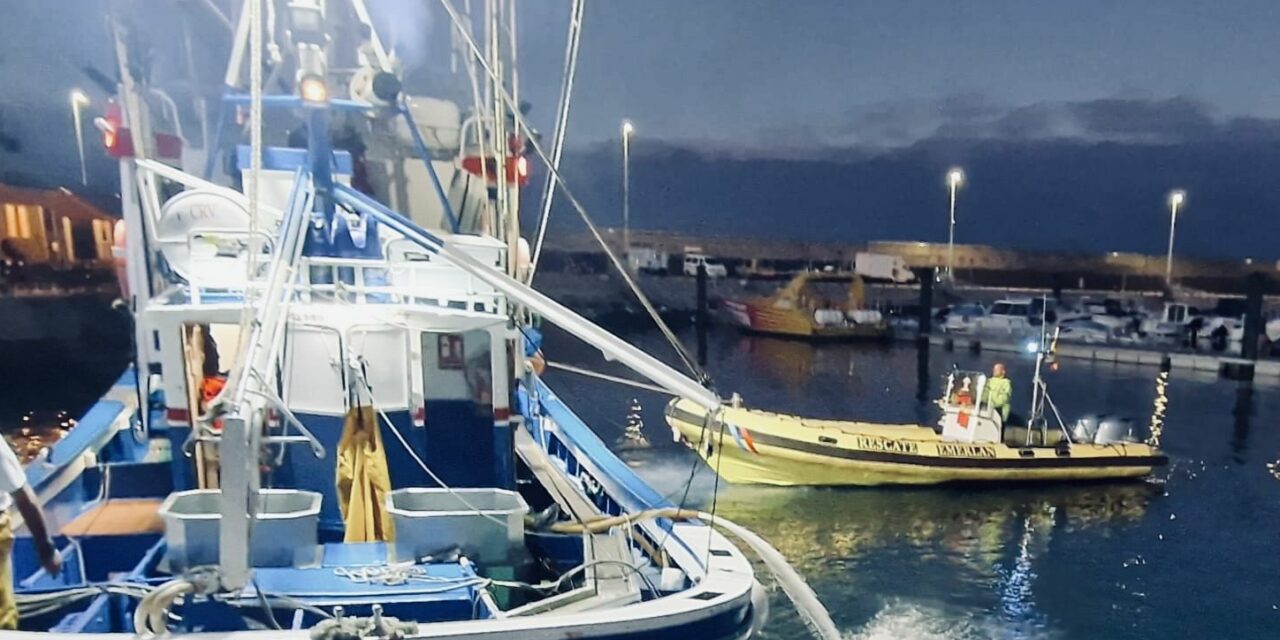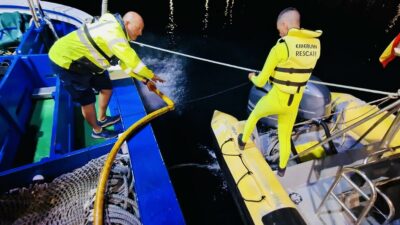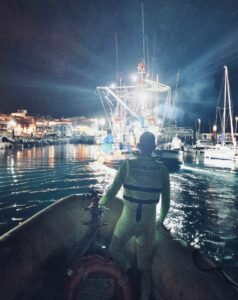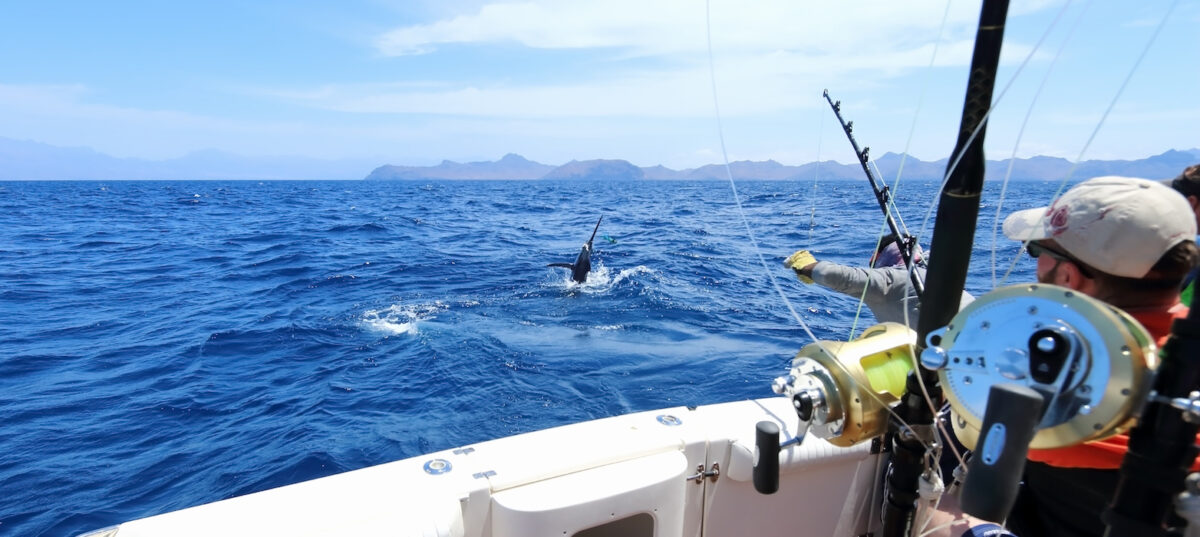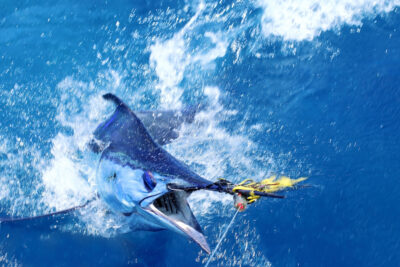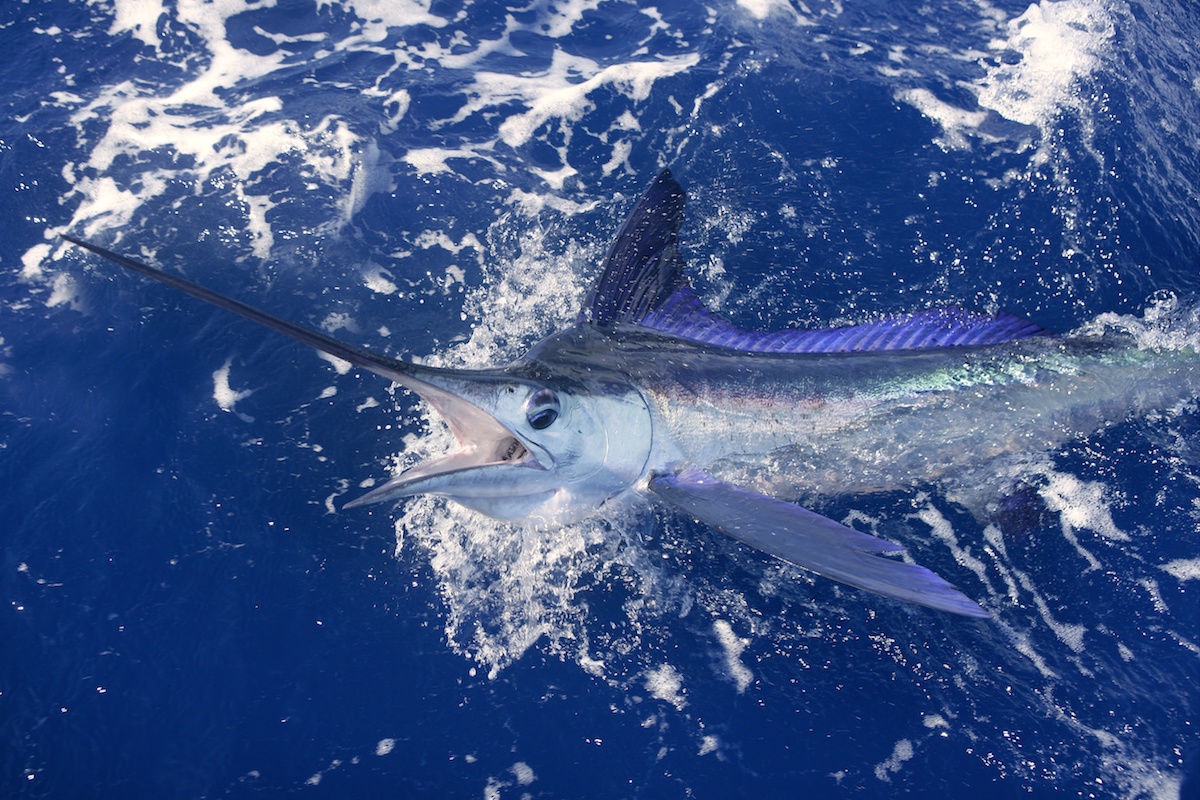In a rare incident, a tuna fishing boat was reportedly “attacked” by a marlin yesterday, leading to an emergency situation some 30 miles off the coast of Lanzarote. The 90-ton vessel was in peril, endangering the lives of its five crew members.
Responding to the crisis, non-profit emergency service NGO, Emergencias de Lanzarote (Emerlan), managed to reach the struggling vessel. The crew had already installed two bilge pumps in the engine room and were attempting to head back toward the coast to avert a disaster.
Emerlan provided a “motobomb” pump and escorted the vessel to the port of La Tiñosa in Puerto del Carmen (Tías), ensuring its safe arrival. Prior notification was sent to personnel at La Tiñosa port, preparing them for the emergency docking.
Once docked, efforts to empty the bait tanks began. These tanks had been flooded with 13 tons of water, adding to the vessel’s instability. Emerlan and the crew worked collaboratively to remove ballast and empty the hold to meet the necessary docking conditions.
The operation successfully concluded at 8:00 AM on Monday morning. Emerlan emphasised that while the crew were bravely trying to face the difficult situation, the marlin attack, although uncommon, represents a dangerous event in these waters.
While attacks by marlins on fishing boats are rare, they are not unheard of. In 2015, off the coast of Australia, a marlin leapt onto a fishing boat, injuring two people. In 2018, a fishing vessel in Florida reported a marlin attack that damaged the boat’s stern, and a 2019 incident near Hawaii involved a marlin’s bill piercing a boat’s hull, although no one was hurt.
Marlins in Canary Waters
Marlins are large predatory fish known for their long, spear-like bills and they are powerful swimmers, as such they can pose a potential risk to smaller fishing vessels, underlining the need for adequate safety measures while operating in waters like those of The Canary Islands which marlins are known to inhabit.
Located in the Atlantic Ocean off the northwest coast of Africa, these islands are known for their diverse marine life, including various species of marlin. The most commonly encountered marlins in these waters are Blue Marlin (Makaira nigricans), the most common species in the Canary Islands, and highly prized by sport fishermen. These fish can reach impressive sizes, with females potentially measuring up to 14 feet and weighing nearly 2,000 pounds. White Marlin (Kajikia albida), while not as large as the Blue Marlin, are still a sought-after species in these waters. They typically measure between 6 to 9 feet and can weigh up to 200 pounds.
Though less common, there might also be occasional sightings of other marlin species or closely related billfish. However, the Blue and White Marlins are the primary species found in the region.
The presence of these marlins contributes to the Canary Islands’ reputation as a popular destination for sport fishing.
Reasons for Boat Attacks
It’s important to note that marlins do not generally “attack” boats in the sense of predatory behaviour. Several factors might explain such incidents, including defensive behavior, if Marlins perceive boats as threats they may react defensively, especially if cornered or endangered. While hunting for prey, a marlin might accidentally collide with a boat, mistaking it for a large fish or being disoriented by the boat’s movement. Boats engaged in fishing often have bait and catch on board, which could attract marlins closer to the vessel. Some marine animals, including marlins, may approach boats out of curiosity, leading to accidental collisions. And if a marlin has been hooked or feels harassed by fishing activities, it may react in a way that inadvertently leads to a boat being damaged.
While marlin attacks on boats are rare, their large size and formidable bills can cause significant damage, making such incidents potentially dangerous for those on board.

